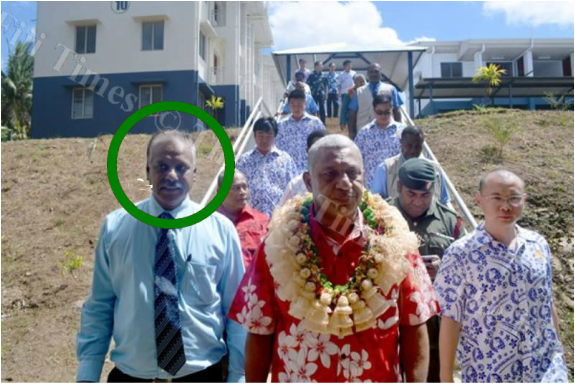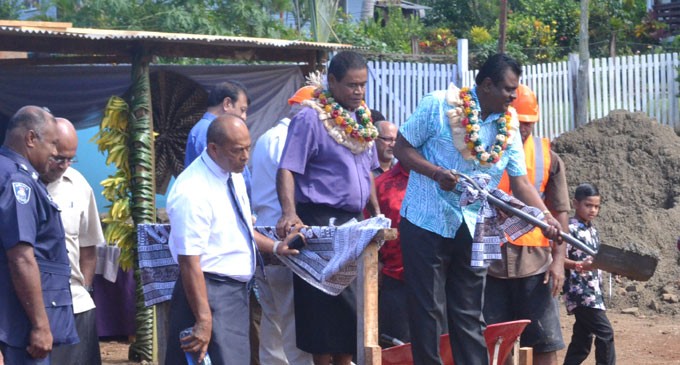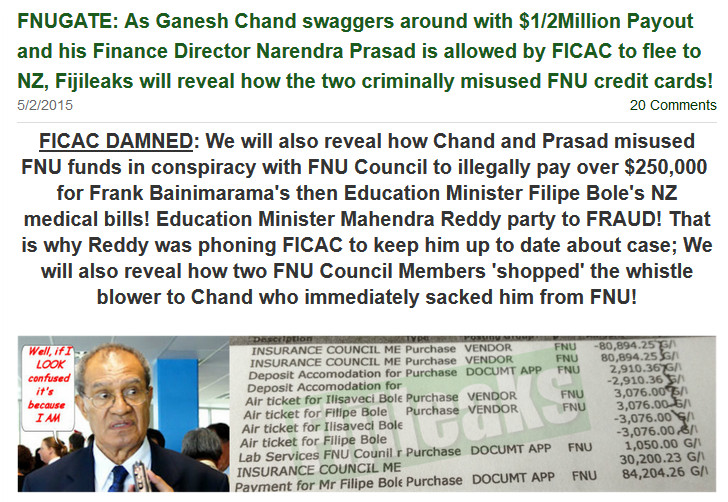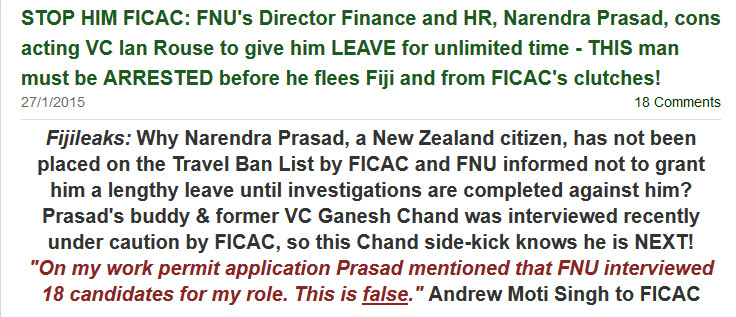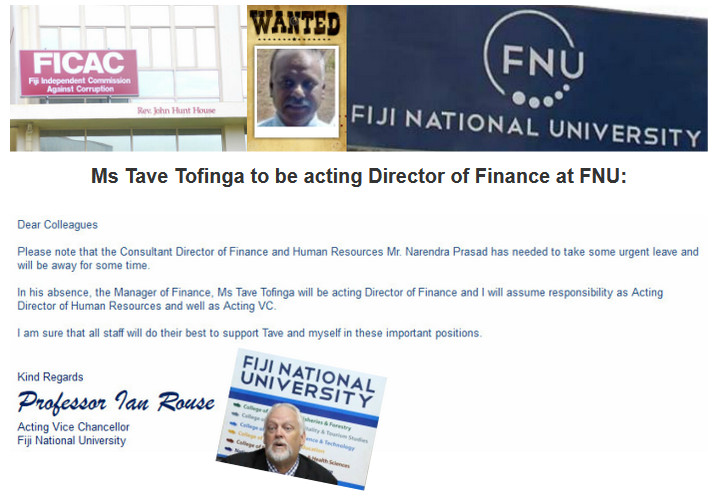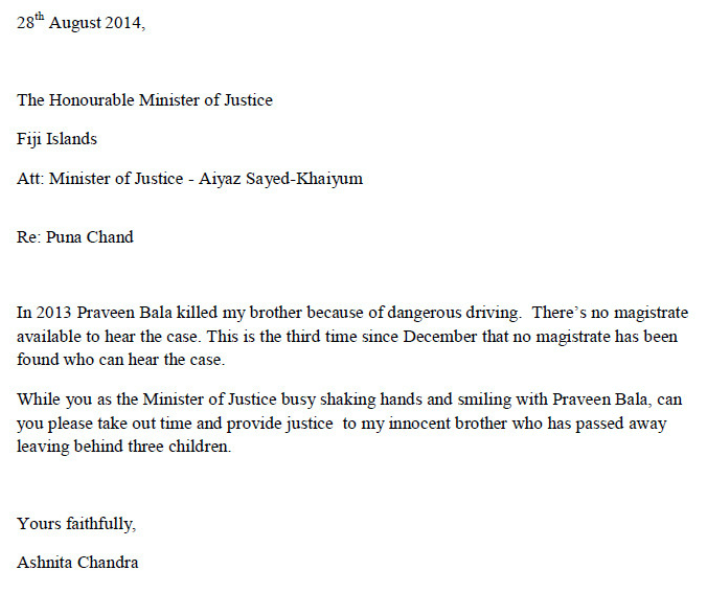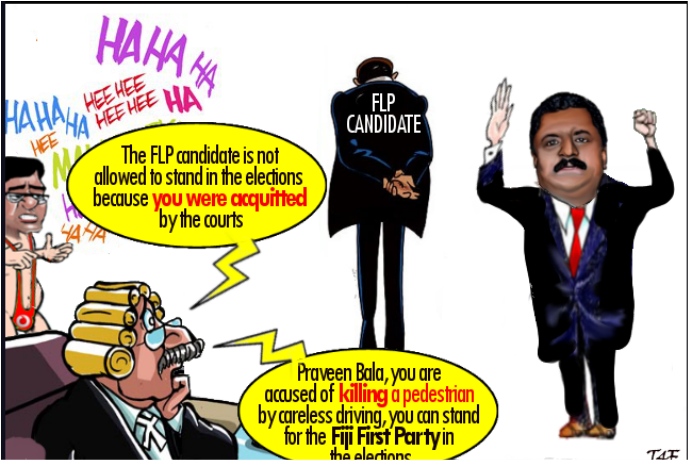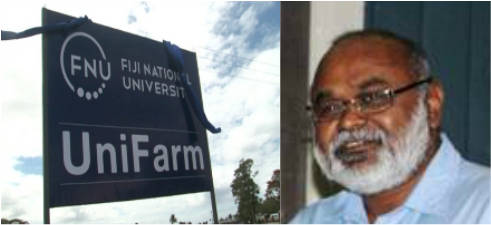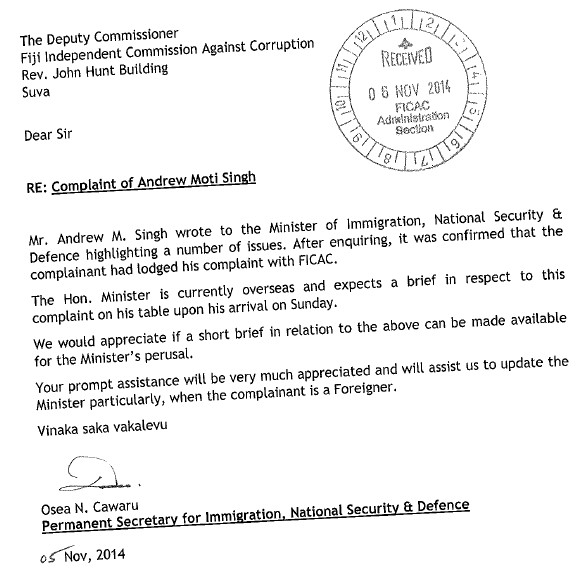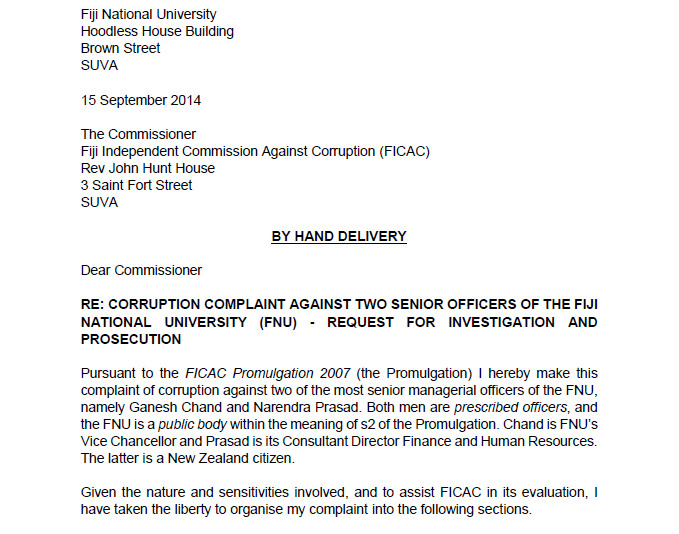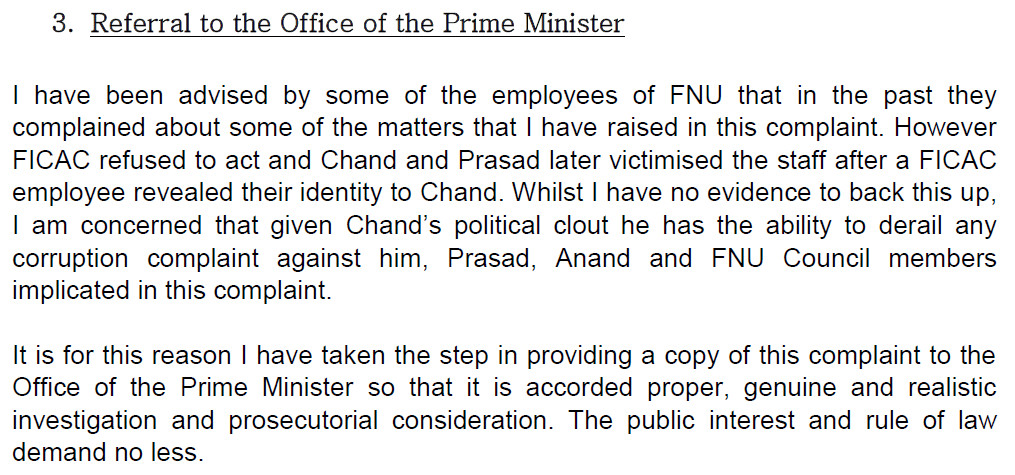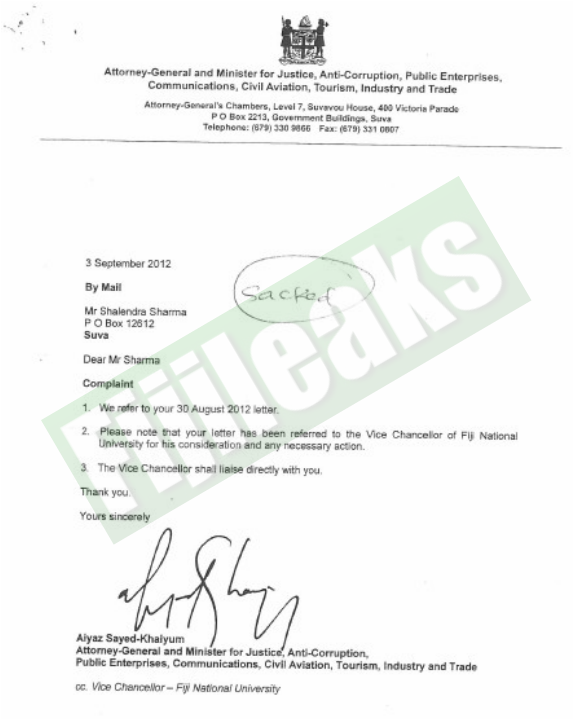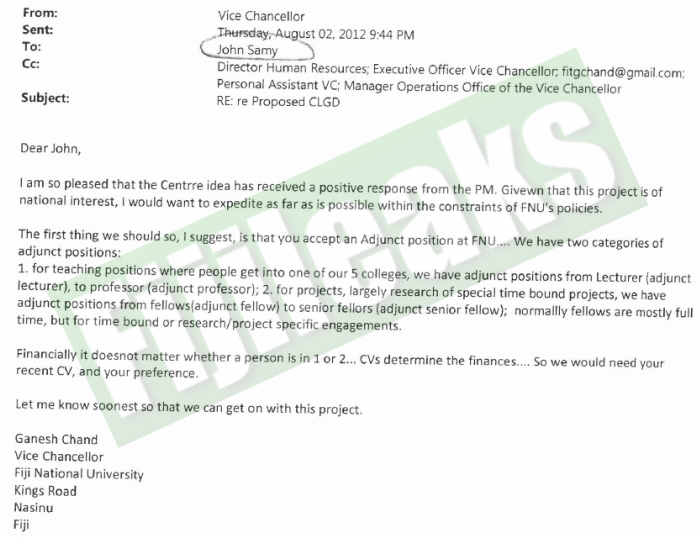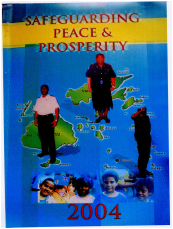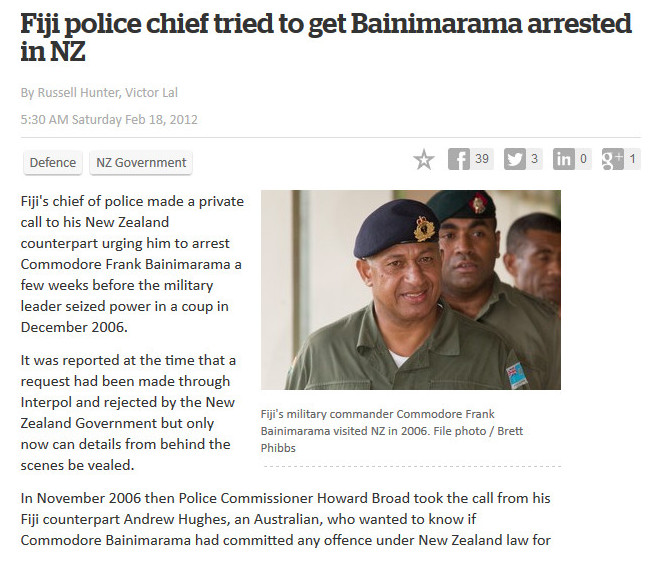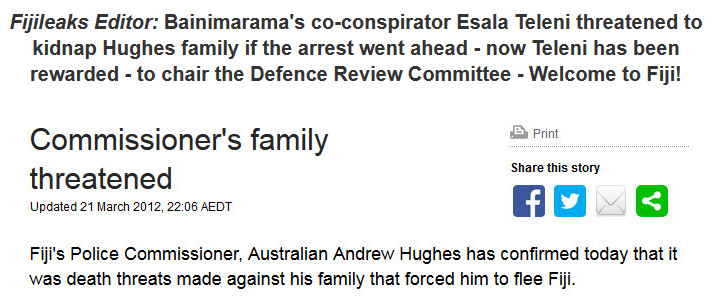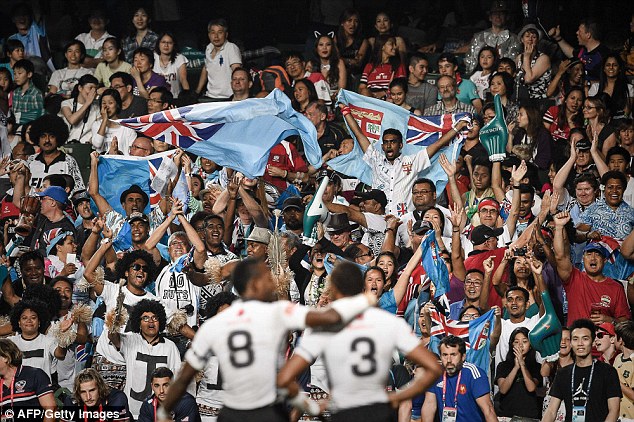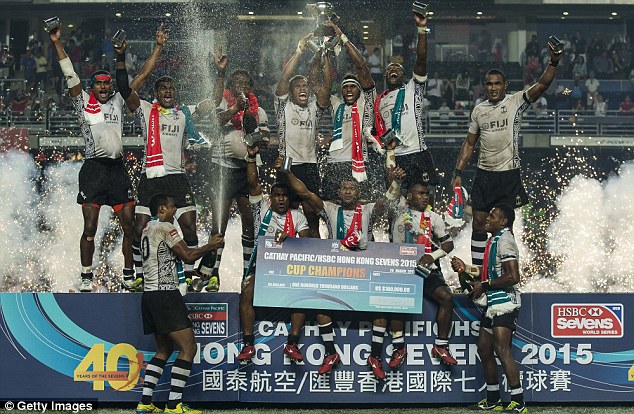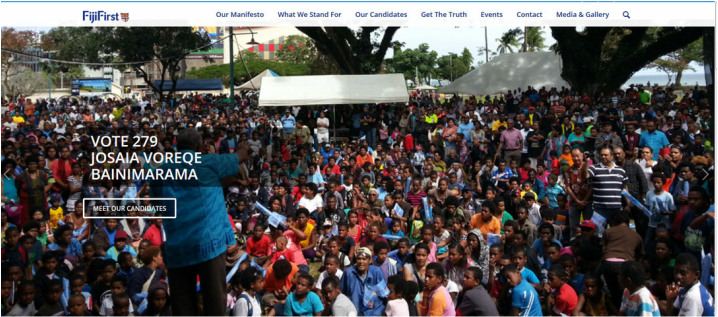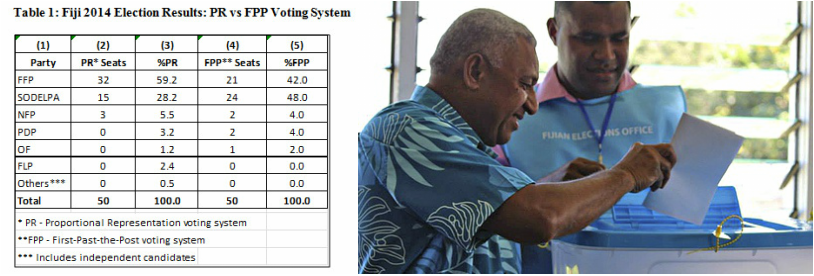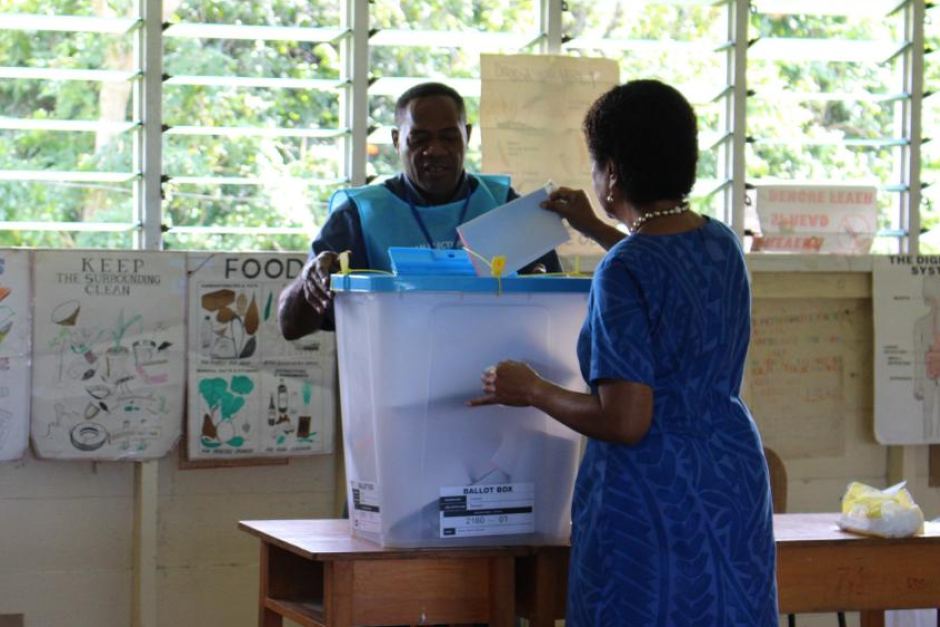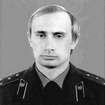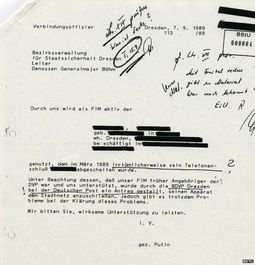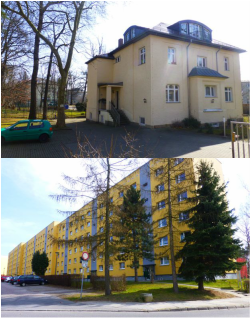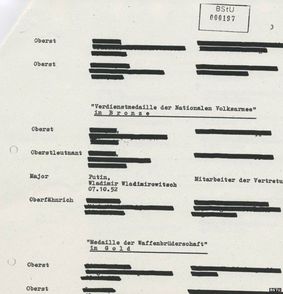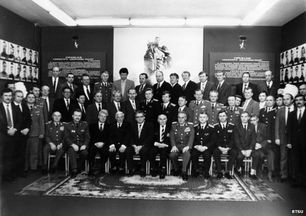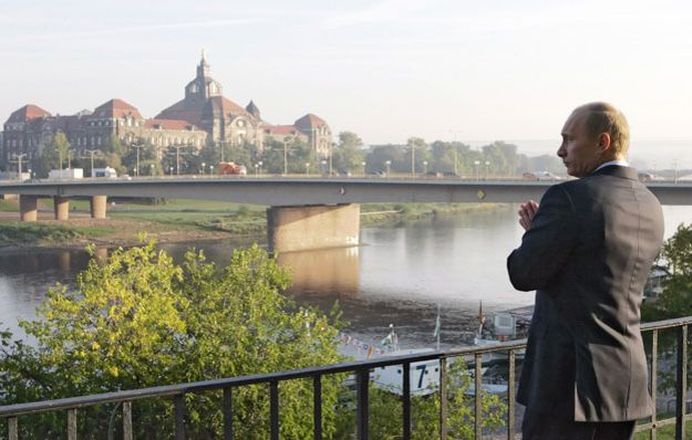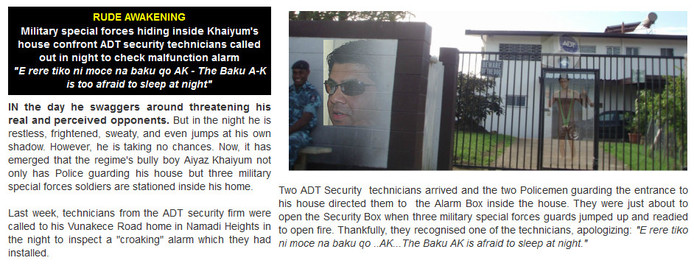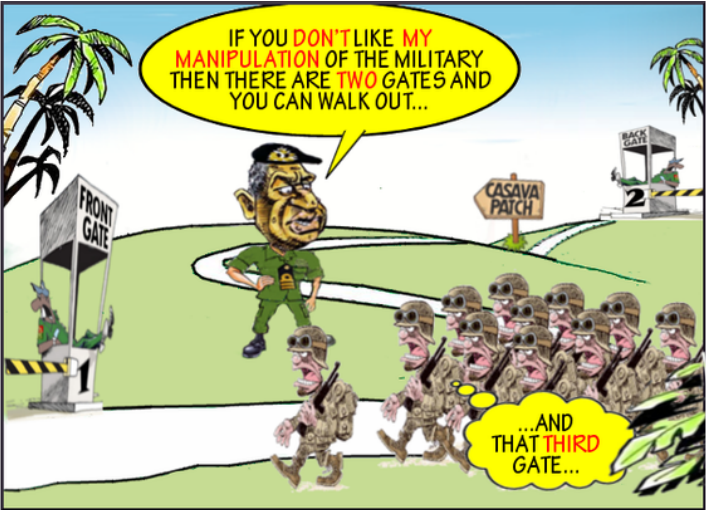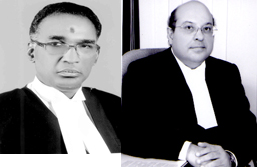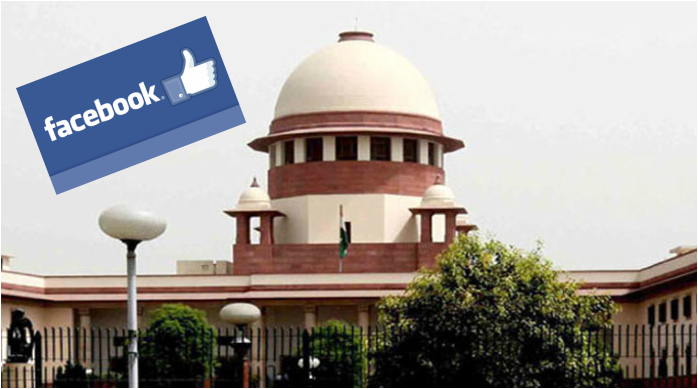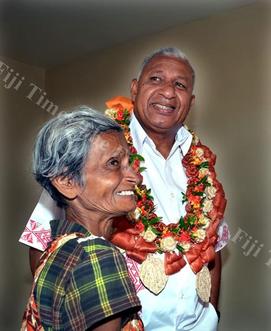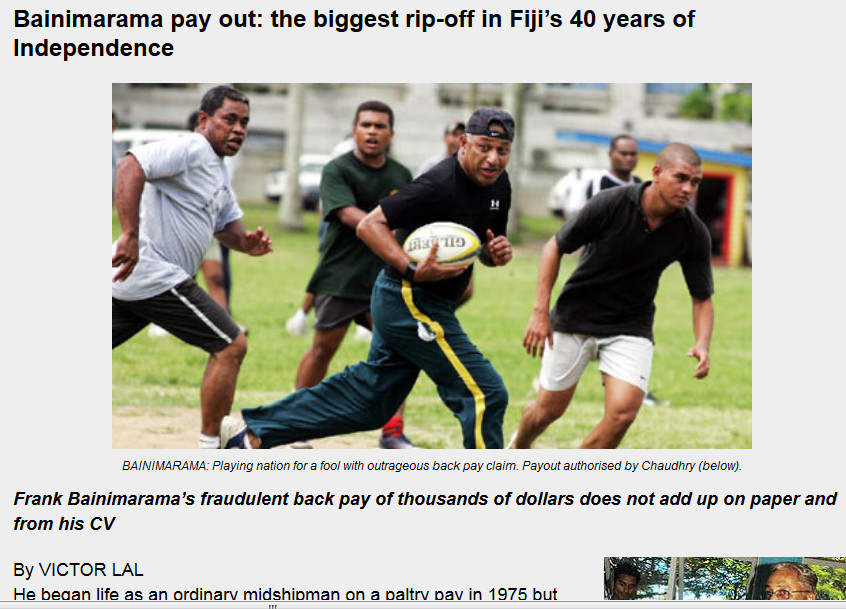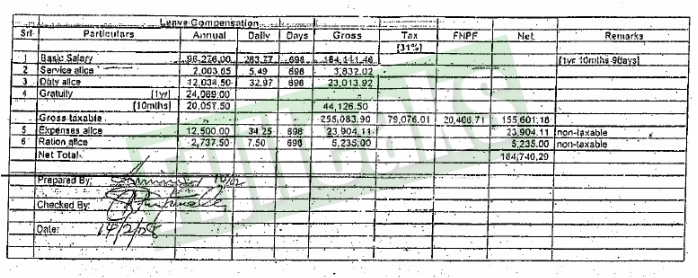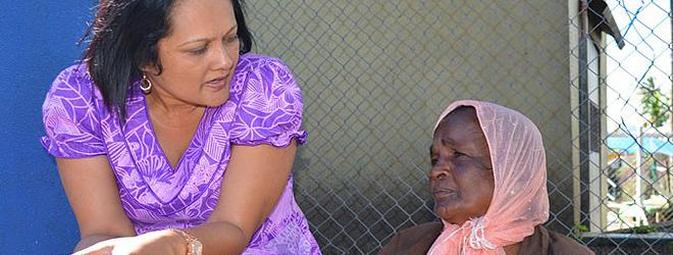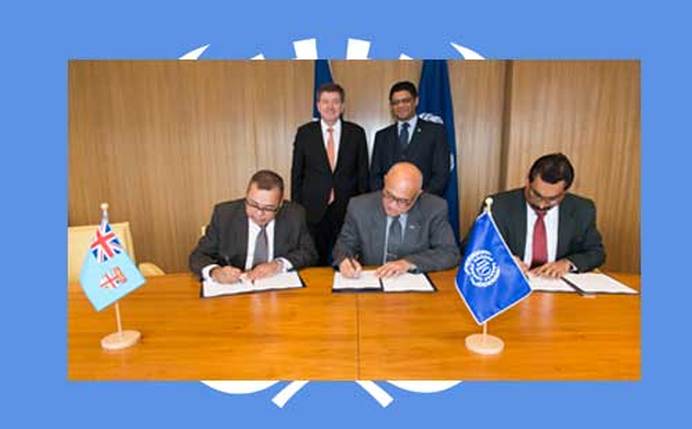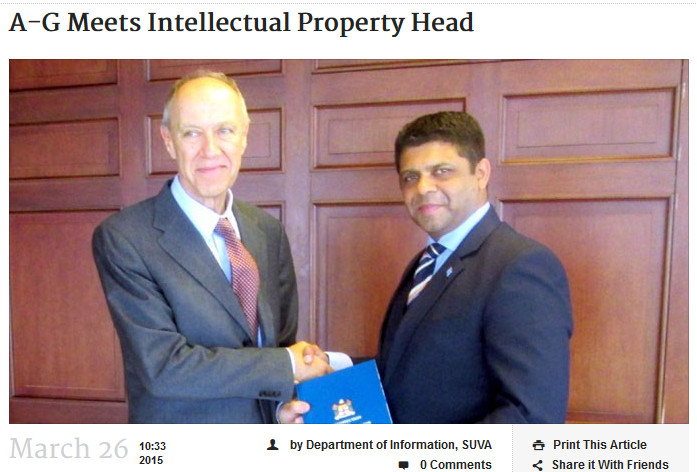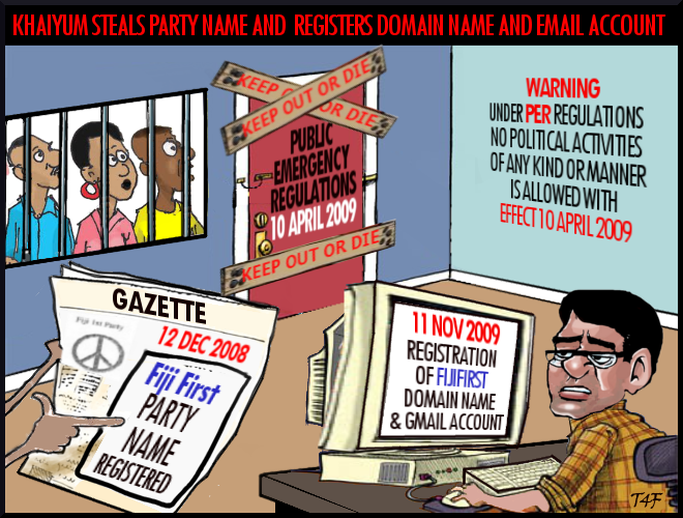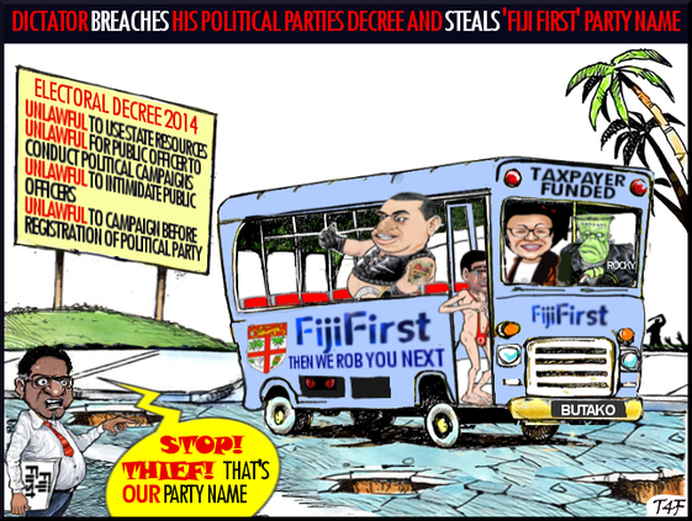JUSTICE DELAYED IS JUSTICE DENIED: As 85-year-old William Apted pleads guilty to causing the death of a four year old girl in Raiwaqa, another family is still WEEPING for Justice - Minister Bala is still at large for allegedly causing death by dangerous driving - WHY - for the Government could not find a magistrate to hear the case!
APTED PLEADS GUILTY: 85-year-old, William Apted who allegedly caused the death of a 4-year-old girl in a road accident in Suva in February last year has pleaded guilty to his charges in the Suva Magistrates Court.
Apted is charged with one count of dangerous driving occasioning death and two counts of dangerous driving occasioning grievous harm.
The four-year-old victim was walking with her family members after a church service along Varani Street in Raiwaqa, when a vehicle driven by Apted allegedly hit the family of four from the side of the road.
Former Vice President, Ratu Joni Madraiwiwi, former CEO of Fiji Rugby Union Pio Bosco Tikoisuva, businessman Iqbal Janif, and Daryl Tarte were character witnesses for Apted.
Tikoisuva said Apted cannot deliberately harm anyone as his whole family is nice and loving.
Tarte said that Apted's family comes from humble origin.
Defence lawyer Nick Barnes said that the accident has affected Apted physically and mentally as he is deeply remorseful and cannot stop thinking about the four-year-old girl who died in the accident.
Barnes told the court that Apted pleaded guilty at the earliest possible opportunity.
He has asked for a minimum suspended sentence.
He is expected to be sentenced on 8th June. Source: Fiji Times, 31 March 2015
Apted is charged with one count of dangerous driving occasioning death and two counts of dangerous driving occasioning grievous harm.
The four-year-old victim was walking with her family members after a church service along Varani Street in Raiwaqa, when a vehicle driven by Apted allegedly hit the family of four from the side of the road.
Former Vice President, Ratu Joni Madraiwiwi, former CEO of Fiji Rugby Union Pio Bosco Tikoisuva, businessman Iqbal Janif, and Daryl Tarte were character witnesses for Apted.
Tikoisuva said Apted cannot deliberately harm anyone as his whole family is nice and loving.
Tarte said that Apted's family comes from humble origin.
Defence lawyer Nick Barnes said that the accident has affected Apted physically and mentally as he is deeply remorseful and cannot stop thinking about the four-year-old girl who died in the accident.
Barnes told the court that Apted pleaded guilty at the earliest possible opportunity.
He has asked for a minimum suspended sentence.
He is expected to be sentenced on 8th June. Source: Fiji Times, 31 March 2015
